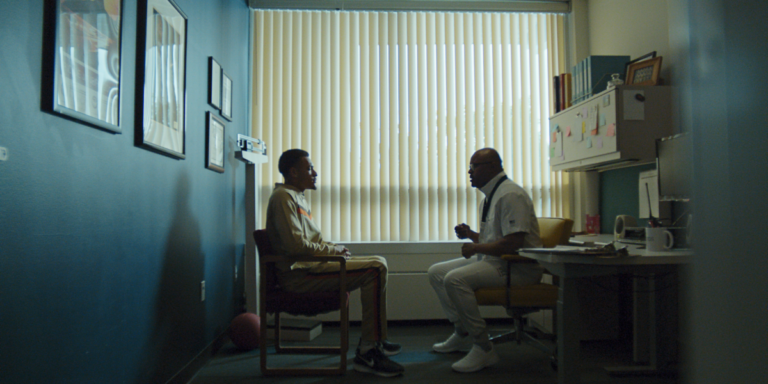I was at a loss for words, since I’m usually the one asking the questions in interviews. My thoughts drifted back to my childhood, to vague memories of the pediatric dentist: the fish tank in the waiting room, the wall of manila file folders behind the receptionist, the smell of bubblegum fluoride wafting through the stuffy office air. But as Dr. Kweku Smith surmised, I’d been a dental patient for as long as I could remember, so I couldn’t remember the first time I’d been there. Coincidentally, the day of my phone interview with Smith, a psychology services provider for the U.S. Olympic and Paralympic Committee, I had an appointment with an orthodontist.
Pediatric dentists strive to make visits enjoyable and ease a child’s fears, Smith says. More importantly, children develop healthy habits, build a relationship with their dentist, and attend regularly every six months. Without this experience, he says, going to the dentist as an adult can be frightening. We are taught from an early age about the importance of dental, medical, and vision care, so why not mental health care?
“Most people see it as a disease, a diagnosis,” Smith said. luck“But if we are mentally Wellness process?”
Smith, a former Milwaukee Bucks team psychologist, is now experiencing his first Olympic and Paralympic Games in Paris as the mental health care provider for the U.S. team. While Smith and his colleagues will be on call around the clock for crises big and small throughout the games, Smith encourages persevering athletes to get health checks when their mental health is in good hands. Smith encourages the public to do the same to manage their mental health.
“I tell people, seek out services before you need them, so there’s someone who can figure out what the average standard is for you,” Smith says. “If you see things slowly getting worse, they can hold a mirror up to you and say, hey, let’s try these things. Or, unfortunately, if there’s a trauma or tragedy that happens, there are professionals who are there as part of the team.”
Smith adds: “Think about your mental health just like you would your physical health. We have yearly checkups, we see the eye doctor, we go to the dentist regularly. We don’t go every day. We go as needed until something happens, and then maybe a few times.”
Courtesy of Figs
Being proactive about your mental health also buys you time to find a provider that meets your needs and preferences, Smith says.
“Not every psychologist or therapist is right for every person, so if you don’t find the right person, you have time to look,” he says, “but if you’re going to see someone who’s in the middle of a tragedy or has been through some kind of trauma, I’m almost certain that the first person you meet will be helpful.”
When it comes to certain cancers and other deadly medical conditions, prevention and early detection saves lives. Smith does the same with mental health care.
“[Don’t] Instead of looking at it from an illness perspective, look at the mental health umbrella from health to illness,” Smith said. luck“The sooner you address the health spectrum, the sooner you can address illness, prevent illness or access mediation services before it gets worse. The earlier you can catch it, the more likely you are to be successful.”
Smith’s encouragement to people to nurture their mental health on sunny days is part of his larger goal to destigmatize mental health treatment. You’ve never been embarrassed to tell someone you had a dentist appointment, so why would you be embarrassed to tell someone you saw a therapist?
“Even if you’re a great person, you can always be better,” Smith says. “That’s what I think about therapy.”
If you need immediate mental health support, 988 Suicide and Crisis Lifeline.
For more information on mental health, see:
Subscribe to Well Adjusted, a newsletter from the Fortune Well team filled with simple strategies to work smarter and live better. sign up It’s free today.


